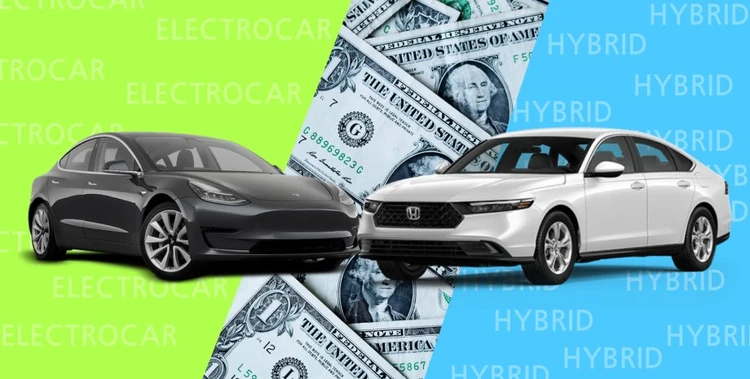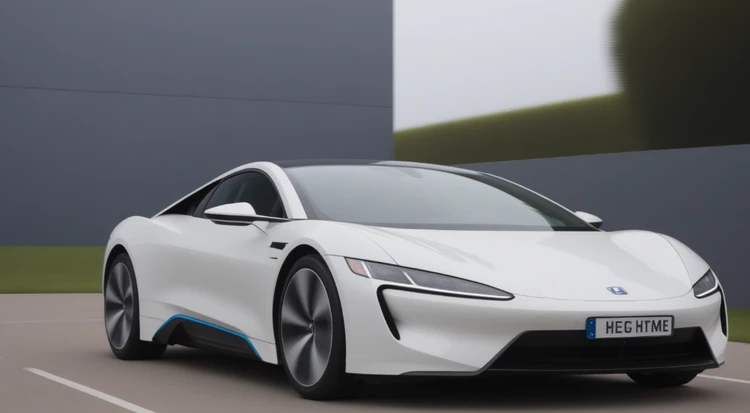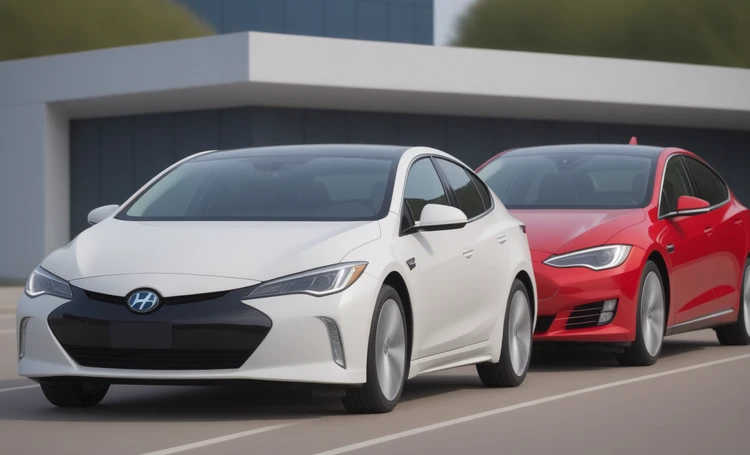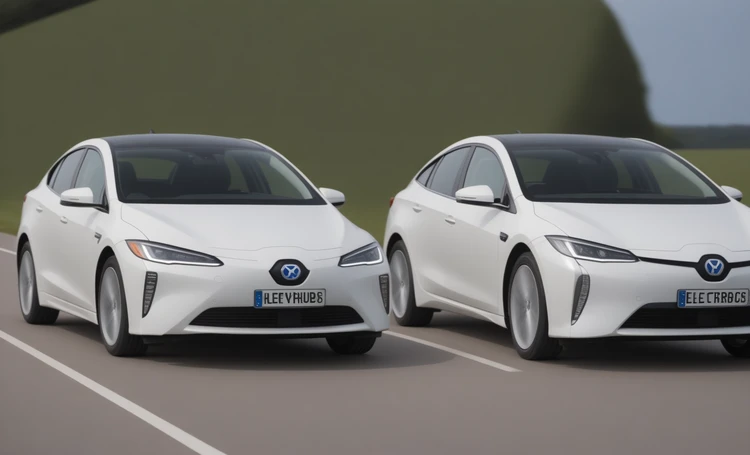Hybrids vs. Electric Vehicles: Which to Choose? 🚗⚡
In the era of eco-driving, buyers in Germany, America and Europe face a difficult choice: hybrid car or electric car? Check out eco-driving accessories here. Let's understand the key differences, advantages and disadvantages of both types of vehicles.
🌿 Hybrid cars: advantages and disadvantages
Advantages:
- Dual Fuel System: Hybrid vehicles use both conventional fuel and electricity, increasing their range and convenience in areas with limited charging infrastructure.
- Energy efficiency: Hybrids use energy efficiently, especially in urban environments, reducing fuel consumption and carbon dioxide emissions.
- Autonomy: Hybrids do not require frequent charging as they can automatically switch to the petrol engine.
Flaws:
- Maintenance Costs: Hybrid vehicles may require more expensive maintenance due to the complexity of their systems.
- Weight and Space: Additional components of the hybrid system can add weight to the vehicle and take up additional space.
⚡ Electric cars: advantages and disadvantages
Advantages:
- Environmental friendliness: Electric cars have no carbon dioxide emissions into the atmosphere, which makes them more environmentally friendly.
- Low Operating Costs: No need for gasoline and fewer moving parts reduce overall operating costs.
- Incentives and subsidies: Many countries have tax incentives and subsidies for electric vehicle owners.
Flaws:
- Range: Limited range on a single charge can be an issue for long trips.
- Charging infrastructure: The need to access charging stations may be a limitation in some regions.
🌍 Environmental aspect: hybrids vs electric cars
The choice between hybrid and electric vehicles often depends on environmental considerations and the driver's personal preferences.
Environmental impact:
- Hybrids, while reducing emissions compared to traditional cars, still use gasoline and produce some emissions.
- Electric vehicles eliminate all vehicle-level emissions, but their environmental friendliness depends on the source of electrical power for charging.
Sustainability and availability of resources:
- The production and disposal of electric vehicle batteries is resource intensive and can have a negative impact on the environment.
- Hybrid cars use fewer batteries but still rely on oil and its resources.
🚘 Technological development and innovation
Technological advancement plays a key role in the development and improvement of both hybrid and electric vehicles.
Hybrid cars:
- Manufacturers are constantly working to improve the efficiency of hybrid systems, reducing fuel consumption and increasing range.
- Innovations in regenerative braking and more efficient engines continue to improve hybrid performance.
Electric cars:
- The focus is on developing higher capacity batteries, more efficient and environmentally friendly battery technology.
- Improving charging infrastructure, including fast charging and wireless charging, is a key development area.
💰 Economic aspect of choice
In addition to environmental and technological factors, the economic aspect also plays a significant role in the choice between a hybrid and an electric car.
Purchase price:
- Hybrid cars are typically cheaper than electric vehicles, making them more affordable to a wider range of buyers.
- Electric vehicles often have a higher initial cost, but their costs can be lowered by government subsidies and tax breaks.
Operating costs:
- Hybrid cars require gas costs, although less than traditional cars.
- Electric vehicles have significantly lower operating costs because electricity costs less than gasoline and the vehicle is easier to maintain due to fewer moving parts.
🌐 Global trends and future of the automotive industry
Both types of vehicles contribute to the automotive industry's transition towards greener and more sustainable vehicles.
Development of the electric vehicle market:
- Electric vehicles are gaining popularity around the world and their market share is expected to continue to grow.
- Government incentives and investments in charging infrastructure are supporting this trend.
Outlook for hybrid vehicles:
- Hybrid vehicles remain a popular choice for those seeking a balance between traditional and all-electric vehicles.
- Manufacturers continue to develop advanced hybrid technologies, improving efficiency and performance.
🚀 Conclusion: Which car should you choose?
When choosing between a hybrid and an electric car, there are several key factors to consider:
Personal needs and lifestyle:
- If you frequently take long trips and don't have easy access to charging stations, a hybrid may be a more practical choice.
- For city dwellers, especially in areas with a well-developed charging infrastructure, an electric car can offer more benefits.
Environmental considerations:
- Electric cars are ideal for those looking to minimize their environmental footprint.
- Hybrids are also a greener choice than traditional cars, but they still rely on fossil fuels.
Budget and economic considerations:
- You need to consider the total costs of ownership, including purchase price, operating costs, tax benefits and subsidies.
🌟 Conclusions
The choice between a hybrid and an electric car depends on individual preferences, lifestyle and economic considerations. Both types of vehicles offer unique benefits and help reduce your environmental impact. When deciding whether a hybrid or an electric car is best for you, it's important to consider all the factors to make an informed and sustainable choice.



